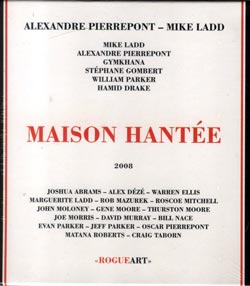
A work articulated around Pierrepont's main spiral poem and Ladd's traverse poems, with music improvised from a group inc. Hamid Drake, Roscoe Mitchell, Evan Parker, William Parker, &c.
Out of Stock
Quantity in Basket: None
Log In to use our Wish List
Shipping Weight: 4.00 units
Sample The Album:
Mike Ladd-voice, words & visions / sound constructor
Alexandre Pierrepont-voice, words & visions / sound designer
Gymkhana-sound manipulator
Stéphane Gombert-voice
William Parker-guimbri
Hamid Drake-frame drum
Joshua Abrams-mpc, harmonium, guimbri, percussion
Alex Dézé-erratic piano
Hamid Drake-drums
Warren Ellis-violin, loops
Marguerite Ladd-sampled composition
Rob Mazurek-cornet, effects
Roscoe Mitchell-alto saxophone
John Moloney-electronics, percussion
Gene Moore-electric guitar
Thurston Moore-electric guitar
Joe Morris-electric guitar
David Murray-tenor saxophone
Bill Nace-electric guitar
Evan Parker-soprano saxophone
Jeff Parker-electric guitar
William Parker-bass
Oscar Pierrepont-vocals
Matana Roberts-clarinet
Craig Taborn-mini-moog, Wurlitzer, bent circuit devices
Click an artist name above to see in-stock items for that artist.
UPC: 3760131270174
Label: RogueArt
Catalog ID: 17
Squidco Product Code: 11098
Format: CD
Condition: New
Released: 2008
Country: France
Packaging: Digipack
Recorded between June 2007 and July 2008 in New York, Chicago and Paris. Mixed in Paris by Gymkhana, Alexandre Pierrepont and Mike Ladd.
"On one level, both music and poetry are very much the same, that being sound - at least the spoken word would be. Here in "Haunted House" is a sound design or shape being put forth with multiple meanings psychoacoustically, linguistically, musically that I can only say very little about in terms of meaning, since ultimately it's meaning will be with each individual who experiences this work. This rhythmic engagement between these two art forms create a third reality of sound gestures and events that collide and integrate. Yet knowing these facts it still does not allow me to analyze or describe exactly what "Haunted House" is. Hopefully this experience will be a catalyst at some level for good."-Henry Threadgill, excerpts from the liner notes
Artist Biographies
• Show Bio for William Parker "William Parker is a bassist, improviser, composer, writer, and educator from New York City, heralded by The Village Voice as, "the most consistently brilliant free jazz bassist of all time." In addition to recording over 150 albums, he has published six books and taught and mentored hundreds of young musicians and artists. Parker's current bands include the Little Huey Creative Music Orchestra, In Order to Survive, Raining on the Moon, Stan's Hat Flapping in the Wind, and the Cosmic Mountain Quartet with Hamid Drake, Kidd Jordan, and Cooper-Moore. Throughout his career he has performed with Cecil Taylor, Don Cherry, Milford Graves, and David S. Ware, among others." ^ Hide Bio for William Parker • Show Bio for Hamid Drake "Hamid Drake (born August 3, 1955) is an American jazz drummer and percussionist. He lives in Chicago, IL but spends a great deal of time touring worldwide. By the close of the 1990s, Hamid Drake was widely regarded as one of the best percussionists in jazz and avant improvised music. Incorporating Afro-Cuban, Indian, and African percussion instruments and influence, in addition to using the standard trap set, Drake has collaborated extensively with top free-jazz improvisers. Drake also has performed world music; by the late 70s, he was a member of Foday Musa Suso's Mandingo Griot Society and has played reggae throughout his career. Drake has worked with trumpeter Don Cherry, pianist Herbie Hancock, saxophonists Pharoah Sanders, Fred Anderson, Archie Shepp and David Murray and bassists Reggie Workman and William Parker (in a large number of lineups) He studied drums extensively, including eastern and Caribbean styles. He frequently plays without sticks; using his hands to develop subtle commanding undertones. His tabla playing is notable for his subtlety and flair. Drake's questing nature and his interest in Caribbean percussion led to a deep involvement with reggae." ^ Hide Bio for Hamid Drake • Show Bio for Joshua Abrams "Bassist, Composer Joshua Abrams has been in the thick of Chicago's vibrant music scene for fifteen years, playing & recording as leader & sideman in projects across the genres. he co-founded the "back porch minimalist" band town & country (thrill jockey/box media) & with Matana Roberts & Chad Taylor the trio sticks & stones (thrill jockety/482 music). He has released four records under his own name as well as two under the moniker "reminder" that navigate the realms of jazz & improvisation, electro-acoustic composition, beatmaking, minimalism and field recordings (eremite/delmark/eastern developments/lucky kitchen). He has appeared on over 50 recordings including records by Fred Anderson, Hamid Drake & Bindu, Bonny "prince" Billy, Nicole Mitchell Black Earth Ensemble and Black Earth Strings, Sam Prekop, Mike Reed's Loose Assembly, Ernest Dawkins Chicago 12, Savath & Savalis, Prefuse 73, Rhys Chatham, Rob Mazurek, Tortoise, the Roots, Edith Frost, Mia Doi Todd, Diverse, Joan of Arc, Lorren Mazzacane Connors, David Grubbs, David Boykin, Chris Conelly, & the Cairo Gang. He has performed with Roscoe Mitchell, Bill Dixon, Von Freeman, Fred Anderson trio, John Tchicai, the Exploding Star Orchestra, Henry Grimes, Axel Dorner, Fred Lonberg-Holm, Peter Evans, Damo Suzuki, Wilbert de Joode, Jandek, Walter Wierbos, Tony Conrad, Bobby Broom, Sean Bergin, Nate Wooley, Craig Taborn, David Stakenas, Fred Hopkins, Rhys Chatham, Kurt Rosenwinkel, Neil Michael Hagerty, Lin Halliday, Raymond Strid, Douglas Ewart, Toumani Diabate, the Chicago Underground Orchestra, Ron Dewar, Baby d, Kevin Drumm, Terry x, Frederick Lvunquist, Jim o'Rourke, Kurt Vonnegut, & Earle Brown. When in chicago he plays weekly with Jeff Parker and John Herndon." ^ Hide Bio for Joshua Abrams • Show Bio for Hamid Drake "Hamid Drake (born August 3, 1955) is an American jazz drummer and percussionist. He lives in Chicago, IL but spends a great deal of time touring worldwide. By the close of the 1990s, Hamid Drake was widely regarded as one of the best percussionists in jazz and avant improvised music. Incorporating Afro-Cuban, Indian, and African percussion instruments and influence, in addition to using the standard trap set, Drake has collaborated extensively with top free-jazz improvisers. Drake also has performed world music; by the late 70s, he was a member of Foday Musa Suso's Mandingo Griot Society and has played reggae throughout his career. Drake has worked with trumpeter Don Cherry, pianist Herbie Hancock, saxophonists Pharoah Sanders, Fred Anderson, Archie Shepp and David Murray and bassists Reggie Workman and William Parker (in a large number of lineups) He studied drums extensively, including eastern and Caribbean styles. He frequently plays without sticks; using his hands to develop subtle commanding undertones. His tabla playing is notable for his subtlety and flair. Drake's questing nature and his interest in Caribbean percussion led to a deep involvement with reggae." ^ Hide Bio for Hamid Drake • Show Bio for Rob Mazurek "Rob Mazurek is an American electro-acoustic composer, cornetist, improviser and visual artist living in Chicago, Illinois. As a composer, Rob Mazurek has written over 300 original compositions over the past 30 years, and has released 55 recordings on various labels. He currently leads a number of ensembles, including Exploding Star Orchestra, Pharoah and the Underground (featuring Pharoah Sanders), Chicago Underground, Pulsar Quartet, São Paulo Underground, Skull Sessions, Sound Is Quintet, Starlicker, Mandarin Movie and Throne of the House of Good and Evil, each of which possesses its own distinct musical personality. He has collaborated with a wide variety of artists, such as Bill Dixon, Pharoah Sanders, Mike Ladd, Roscoe Mitchell, Yusef Lateef, Fred Anderson, Naná Vasconcelos, Mamelo Sound System, Kassin and Marcelo Camelo and others. Additionally, Rob Mazurek works as a visual artist (incorporating sound, painting and video) with numerous international performances, exhibitions and artist residencies." ^ Hide Bio for Rob Mazurek • Show Bio for Roscoe Mitchell "Roscoe Mitchell (born August 3, 1940) is an American composer, jazz instrumentalist, and educator, known for being "a technically superb - if idiosyncratic - saxophonist." The Penguin Guide to Jazz described him as "one of the key figures" in avant-garde jazz; All About Jazz states that he has been "at the forefront of modern music" for the past 35 years. Critic Jon Pareles in The New York Times has mentioned that Mitchell "qualifies as an iconoclast." In addition to his own work as a bandleader, Mitchell is known for cofounding the Art Ensemble of Chicago and the Association for the Advancement of Creative Musicians (AACM). Mitchell was born in Chicago, Illinois. He also grew up in the Chicago area, where he played saxophone and clarinet at around age twelve. His family was always involved in music with many different styles playing in the house when he was a child as well as having a secular music background. His brother, Norman, in particular was the one who introduced Mitchell to jazz. While attending Englewood High School in Chicago, he furthered his study of the clarinet. In the 1950s, he joined the United States Army, during which time he was stationed in Heidelberg, Germany and played in a band with fellow saxophonists Albert Ayler and Rubin Cooper, the latter of which Mitchell commented "took me under his wing and taught me a lot of stuff." He also studied under the first clarinetist of the Heidelberg Symphony while in Germany. Mitchell returned to the United States in the early 1960s, relocated to the Chicago area, and performed in a band with Wilson Junior College undergraduates Malachi Favors (bass), Joseph Jarman, Henry Threadgill, and Anthony Braxton (all saxophonists). Mitchell also studied with Muhal Richard Abrams and played in his band, the Muhal Richard Abrams' Experimental Band, starting in 1961. In 1965, Mitchell was one of the first members of the non-profit organization Association for the Advancement of Creative Musicians (AACM) along with Jodie Christian (piano), Steve McCall (drums), and Phil Cohran (composer). The following year Mitchell, Lester Bowie (trumpet), Kalaparusha Maurice McIntyre (tenor saxophone), Favors, Lester Lashley (trombone), and Alvin Fielder (drums), recorded their first studio album, Sound. The album was "a departure from the more extroverted work of the New York-based free jazz players" due in part to the band recording with "unorthodox devices" such as toys and bicycle horns. From 1967 Mitchell, Bowie, Favors and, on occasion, Jarman performed as the Roscoe Mitchell Art Ensemble, then the Art Ensemble, and finally in 1969 were billed as the Art Ensemble of Chicago. The group included Phillip Wilson on drums for short span before he joined Paul Butterfield's band. The group lived and performed in Europe from 1969 to 1971, though they arrived without any percussionist after Wilson left. To fill the void, Mitchell commented that they "evolved into doing percussion ourselves." The band did eventually get a percussionist, Don Moye, who Mitchell had played with before and was living in Europe at that time. For performances, the band often wore brilliant African costumes and painted their faces. The Art Ensemble of Chicago have been described as becoming "possibly the most highly acclaimed jazz band" in the 1970s and 1980s. Mitchell and the others returned to the States in 1971. After having been back in Chicago for three years, Mitchell then established the Creative Arts Collective (CAC) in 1974 that had a similar musical aesthetic to the AACM. The group was based in East Lansing, Michigan and frequently performed in auditoriums at Michigan State University. Mitchell also formed the Sound Ensemble in the early 1970s, an "outgrowth of the CAC" in his words, that consisted mainly of Mitchell, Hugh Ragin, Jaribu Shahid, Tani Tabbal, and Spencer Barefield. In the 1990s, Mitchell started to experiment in classical music with such composers/artists such as Pauline Oliveros, Thomas Buckner, and Borah Bergman, the latter two of which formed a trio with Mitchell called Trio Space. Buckner was also part of another group with Mitchell and Gerald Oshita called Space in the late 1990s. He then conceived the Note Factory in 1992 with various old and new collaborators as another evolution of the Sound Ensemble. He lived in the area of Madison, Wisconsin and performed with a re-assembled Art Ensemble of Chicago. In 1999, the band was hit hard with the death of Bowie, but Mitchell fought off the urge to recast his position in the group, stating simply "You can't do that" in an interview with Allaboutjazz.com editor-in-chief Fred Jung. The band continued on despite the loss. Mitchell has made a point of working with younger musicians in various ensembles and combinations, many of whom were not yet born when the first Art Ensemble recordings were made. Mainly from Chicago, these players include trumpeter Corey Wilkes, bassist Karl E. H. Seigfried, and drummer Isaiah Spencer. In 2007, Mitchell was named Darius Milhaud Chair of Composition at Mills College in Oakland, California, where he currently lives. Mitchell was chosen by Jeff Mangum of Neutral Milk Hotel to perform at the All Tomorrow's Parties festival in March 2012 in Minehead, England." ^ Hide Bio for Roscoe Mitchell • Show Bio for Gene Moore "Gene Moore: guitar; ^ Hide Bio for Gene Moore • Show Bio for Thurston Moore "Along with his work as part of the acclaimed art/punk rock band Sonic Youth, Thurston Moore [b. born July 25, 1958] also pursued numerous solo and side projects, including Even Worse and the Dim Stars with Richard Hell. His first solo album, 1994's Psychic Hearts, featuring ex-Half Japanese guitarist Tim Foljahn and Sonic Youth drummer Steve Shelley, had an appropriately offhand feel but was far from sloppy. Along with carrying Sonic Youth into the 2000s, Moore collaborated with artists including DJ Spooky and Nels Cline, wrote music reviews and other pieces for Arthur magazine, and issued a book, Mix Tape: The Art of Cassette Culture, in 2005. His second song-based album, Trees Outside of the Academy, arrived in 2007, and featured largely acoustic arrangements and cameos by Shelley, Samara Lubelski, and Dinosaur Jr.'s J Mascis. In 2010, Moore guested on the Hat City Intuitive's A Ticket for Decay and began laying the foundation for another solo effort, Demolished Thoughts, which appeared the following year. Following Moore's separation from bandmate, wife, and partner Kim Gordon in late 2011, Sonic Youth was put on indefinite pause. Nevertheless, Moore and Gordon collaborated with Yoko Ono the following year on the album YOKOKIMTHURSTON. By 2012, Moore had begun touring and recording with new act Chelsea Light Moving, as well as joining black metal group Twilight on guitar. The year 2013 saw the release of @, a collaborative album of sax/guitar improvisations with fellow N.Y.C. fringe dweller John Zorn. Arriving in 2014, The Best Day saw Moore shedding the softer acoustic moods of Demolished Thoughts for a return to his signature rock sprawl and daydreamy lyrics. Two years later, he issued the single "Feel It in Your Guts," which was available to anyone who donated to Bernie Sanders' presidential campaign. For 2017's Rock n Roll Consciousness, Moore reunited with his backing band for The Best Day -- Sonic Youth drummer Shelley, My Bloody Valentine bassist Deb Googe, and Nought guitarist James Sedwards -- on a mystically inspired set of songs." ^ Hide Bio for Thurston Moore • Show Bio for Joe Morris "Joe Morris was born in New Haven, Connecticut on September 13, 1955. At the age of 12 he took lessons on the trumpet for one year. He started on guitar in 1969 at the age of 14. He played his first professional gig later that year. With the exception of a few lessons he is self-taught. The influence of Jimi Hendrix and other guitarists of that period led him to concentrate on learning to play the blues. Soon thereafter his sister gave him a copy of John Coltrane's OM, which inspired him to learn about Jazz and New Music. From age 15 to 17 he attended The Unschool, a student-run alternative high school near the campus of Yale University in downtown New Haven. Taking advantage of the open learning style of the school he spent most of his time day and night playing music with other students, listening to ethnic folk, blues, jazz, and classical music on record at the public library and attending the various concerts and recitals on the Yale campus. He worked to establish his own voice on guitar in a free jazz context from the age of 17. Drawing on the influence of Coltrane, Miles Davis, Cecil Taylor,Thelonius Monk, Ornette Coleman as well as the AACM, BAG, and the many European improvisers of the '70s. Later he would draw influence from traditional West African string music, Messian, Ives, Eric Dolphy, Jimmy Lyons, Steve McCall and Fred Hopkins. After high school he performed in rock bands, rehearsed in jazz bands and played totally improvised music with friends until 1975 when he moved to Boston. Between 1975 and 1978 he was active on the Boston creative music scene as a soloist as well as in various groups from duos to large ensembles. He composed music for his first trio in 1977. In 1980 he traveled to Europe where he performed in Belgium and Holland. When he returned to Boston he helped to organize the Boston Improvisers Group (BIG) with other musicians. Over the next few years through various configurations BIG produced two festivals and many concerts. In 1981 he formed his own record company, Riti, and recorded his first LpWraparound with a trio featuring Sebastian Steinberg on bass and Laurence Cook on drums. Riti records released four more LPs and CDs before 1991. Also in 1981 he began what would be a six year collaboration with the multi-instrumentalist Lowell Davidson, performing with him in a trio and a duo. During the next few years in Boston he performed in groups which featured among others; Billy Bang, Andrew Cyrille, Peter Kowald, Joe McPhee, Malcolm Goldstein, Samm Bennett, Lawrence "Butch" Morris and Thurman Barker. Between 1987 and 1989 he lived in New York City where he performed at the Shuttle Theater, Club Chandelier, Visiones, Inroads, Greenwich House, etc. as well as performing with his trio at the first festival Tea and Comprovisation held at the Knitting Factory. In 1989 he returned to Boston. Between 1989 and 1993 he performed and recorded with his electric trio Sweatshop and electric quartet Racket Club. In 1994 he became the first guitarist to lead his own session in the twenty year history of Black Saint/Soulnote Records with the trio recording Symbolic Gesture. Since 1994 he has recorded for the labels ECM, Hat Hut, Leo, Incus, Okka Disc, Homestead, About Time, Knitting Factory Works, No More Records, AUM Fidelity and OmniTone and Avant. He has toured throughout the U.S., Canada and Europe as a solo and as a leader of a trio and a quartet. Since 1993 he has recorded and/or performed with among others; Matthew Shipp, William Parker, Joe and Mat Maneri, Rob Brown, Raphe Malik, Ivo Pearlman, Borah Bergman, Andrea Parkins, Whit Dickey, Ken Vandermark, DKV Trio, Karen Borca, Eugene Chadborne, Susie Ibarra, Hession/Wilkinson/Fell, Roy Campbell Jr., John Butcher, Aaly Trio, Hamid Drake, Fully Celebrated Orchestra and others. He began playing acoustic bass in 2000 and has since performed with cellist Daniel Levin, Whit Dickey and recorded with pianist Steve Lantner. He has lectured and conducted workshops trroughout the US and Europe. He is a former member of the faculty of Tufts University Extension College and is currently on the faculty at New England Conservatory in the jazz and improvisation department. He was nominated as Best Guitarist of the year 1998 and 2002 at the New York Jazz Awards." ^ Hide Bio for Joe Morris • Show Bio for David Murray "David Keith Murray (born February 19, 1955) is an American jazz saxophonist and composer who performs mostly on tenor and bass clarinet. He has recorded prolifically for many record labels since the mid-1970s. Murray was born in Oakland, California, United States. He attended Pomona College, graduating in 1977. He was initially influenced by free jazz musicians such as Albert Ayler and Archie Shepp. He gradually evolved a more diverse style in his playing and compositions. Murray set himself apart from most tenor players of his generation by not taking John Coltrane as his model, choosing instead to incorporate elements of mainstream players Coleman Hawkins, Ben Webster and Paul Gonsalves into his mature style. Despite this, he recorded a tribute to Coltrane, Octet Plays Trane, in 1999. He played a set with the Grateful Dead at a show on September 22, 1993, at Madison Square Garden in New York City. His 1996 tribute to the Grateful Dead, Dark Star, was also critically well received. Murray was a founding member of the World Saxophone Quartet with Oliver Lake, Julius Hemphill and Hamiet Bluiett. He has recorded or performed with musicians such as Henry Threadgill, James Blood Ulmer, Olu Dara, Tani Tabbal, Butch Morris, Donal Fox, McCoy Tyner, Elvin Jones, Sunny Murray (no relation), Ed Blackwell, Johnny Dyani, Fred Hopkins, and Steve McCall. David Murray's use of the circular breathing technique has enabled him to play astonishingly long phrases." ^ Hide Bio for David Murray • Show Bio for Bill Nace "Guitarist Bill Nace has ripped a new black hole in the free rock universe as a constant, energising presence in the Boston area performing with Chris Corsano in Vampire Belt (and together with Jessica Rylan as Vampire Can't), Thurston Moore in Northampton Wools, x.0.4 with Jake Meginsky & John Truscinski and a coruscating duo with free reed player Paul Flaherty. His collaborations even extended to a short-lived association with Brighton noiseniks Dylan Nyoukis & Karen Constance (aka Blood Stereo) under the Ceylon Mange moniker." ^ Hide Bio for Bill Nace • Show Bio for Evan Parker "Evan Parker was born in Bristol in 1944 and began to play the saxophone at the age of 14. Initially he played alto and was an admirer of Paul Desmond; by 1960 he had switched to tenor and soprano, following the example of John Coltrane, a major influence who, he would later say, determined "my choice of everything". In 1962 he went to Birmingham University to study botany but a trip to New York, where he heard the Cecil Taylor trio (with Jimmy Lyons and Sunny Murray), prompted a change of mind. What he heard was "music of a strength and intensity to mark me for life ... l came back with my academic ambitions in tatters and a desperate dream of a life playing that kind of music - 'free jazz' they called it then." Parker stayed in Birmingham for a time, often playing with pianist Howard Riley. In 1966 he moved to London, became a frequent visitor to the Little Theatre Club, centre of the city's emerging free jazz scene, and was soon invited by drummer John Stevens to join the innovative Spontaneous Music Ensemble which was experimenting with new kinds of group improvisation. Parker's first issued recording was SME's 1968 Karyobin, with a line-up of Parker, Stevens, Derek Bailey, Dave Holland and Kenny Wheeler. Parker remained in SME through various fluctuating line-ups - at one point it comprised a duo of Stevens and himself - but the late 1960s also saw him involved in a number of other fruitful associations. He began a long-standing partnership with guitarist Bailey, with whom he formed the Music Improvisation Company and, in 1970, co-founded Incus Records. (Tony Oxley, in whose sextet Parker was then playing, was a third co-founder; Parker left Incus in the mid-1980s.) Another important connection was with the bassist Peter Kowald who introduced Parker to the German free jazz scene. This led to him playing on Peter Brötzmann's 1968 Machine Gun, Manfred Schoof's 1969 European Echoes and, in 1970, joining pianist Alex von Schlippenbach and percussionist Paul Lovens in the former's trio, of which he is still a member: their recordings include Pakistani Pomade, Three Nails Left, Detto Fra Di Noi, Elf Bagatellen and Physics. Parker pursued other European links, too, playing in the Pierre Favre Quartet (with Kowald and Swiss pianist Irene Schweizer) and in the Dutch Instant Composers Pool of Misha Mengelberg and Han Bennink. The different approaches to free jazz he encountered proved both a challenging and a rewarding experience. He later recalled that the German musicians favoured a "robust, energy-based thing, not to do with delicacy or detailed listening but to do with a kind of spirit-raising, a shamanistic intensity. And l had to find a way of surviving in the heat of that atmosphere ... But after a while those contexts became more interchangeable and more people were involved in the interactions, so all kinds of hybrid musics came out, all kinds of combinations of styles." A vital catalyst for these interactions were the large ensembles in which Parker participated in the 1970s: Schlippenbach's Globe Unity Orchestra, Chris McGregor's Brotherhood of Breath, Barry Guy's London Jazz Composers Orchestra (LJCO) and occasional big bands led by Kenny Wheeler. In the late 70s Parker also worked for a time in Wheeler's small group, recording Around Six and, in 1980, he formed his own trio with Guy and LJCO percussionist Paul Lytton (with whom he had already been working in a duo for nearly a decade). This group, together with the Schlippenbach trio, remains one of Parker's top musical priorities: their recordings include Tracks, Atlanta, Imaginary Values, Breaths and Heartbeats, The Redwood Sessions and At the Vortex. In 1980, Parker directed an Improvisers Symposium in Pisa and, in 1981, he organised a special project at London's Actual Festival. By the end of the 1980s he had played in most European countries and had made various tours to the USA, Canada, Australia, New Zealand and Japan. ln 1990, following the death of Chris McGregor, he was instrumental in organising various tributes to the pianist and his fellow Blue Notes; these included two discs by the Dedication Orchestra, Spirits Rejoice and lxesa. Though he has worked extensively in both large and small ensembles, Parker is perhaps best known for his solo soprano saxophone music, a singular body of work that in recent years has centred around his continuing exploration of techniques such as circular breathing, split tonguing, overblowing, multiphonics and cross-pattern fingering. These are technical devices, yet Parker's use of them is, he says, less analytical than intuitive; he has likened performing his solo work to entering a kind of trance-state. The resulting music is certainly hypnotic, an uninterrupted flow of snaky, densely-textured sound that Parker has described as "the illusion of polyphony". Many listeners have indeed found it hard to credit that one man can create such intricate, complex music in real time. Parker's first solo recordings, made in 1974, were reissued on the Saxophone Solos CD in 1995; more recent examples are Conic Sections and Process and Reality, on the latter of which he does, for the first time, experiment with multi-tracking. Heard alone on stage, few would disagree with writer Steve Lake that "There is, still, nothing else in music - jazz or otherwise - that remotely resembles an Evan Parker solo concert." While free improvisation has been Parker's main area of activity over the last three decades, he has also found time for other musical pursuits: he has played in 'popular' contexts with Annette Peacock, Scott Walker and the Charlie Watts big band; he has performed notated pieces by Gavin Bryars, Michael Nyman and Frederic Rzewski; he has written knowledgeably about various ethnic musics in Resonance magazine. A relatively new field of interest for Parker is improvising with live electronics, a dialogue he first documented on the 1990 Hall of Mirrors CD with Walter Prati. Later experiments with electronics in the context of larger ensembles have included the Synergetics - Phonomanie III project at Ullrichsberg in 1993 and concerts by the new EP2 (Evan Parker Electronic Project) in Berlin, Nancy and at the 1995 Stockholm Electronic Music Festival where Parker's regular trio improvised with real-time electronics processed by Prati, Marco Vecchi and Phillip Wachsmann. "Each of the acoustic instrumentalists has an electronic 'shadow' who tracks him and feeds a modified version of his output back to the real-time flow of the music." The late 80s and 90s brought Parker the chance to play with some of his early heroes. He worked with Cecil Taylor in small and large groups, played with Coltrane percussionist Rashied Ali, recorded with Paul Bley: he also played a solo set as support to Ornette Coleman when Skies of America received its UK premiere in 1988. The same period found Parker renewing his acquaintance with American colleagues such as Anthony Braxton, Steve Lacy and George Lewis, with all of whom he had played in the 1970s (often in the context of London's Company festivals). His 1993 duo concert with Braxton moved John Fordham in The Guardian to raptures over "saxophone improvisation of an intensity, virtuosity, drama and balance to tax the memory for comparison". Parker's 50th birthday in 1994 brought celebratory concerts in several cities, including London, New York and Chicago. The London performance, featuring the Parker and Schlippenbach trios, was issued on a highly-acclaimed two-CD set, while participants at the American concerts included various old friends as well as more recent collaborators in Borah Bergman and Joe Lovano. The NYC radio station WKCR marked the occasion by playing five days of Parker recordings. 1994 also saw the publication of the Evan Parker Discography, compiled by ltalian writer Francesco Martinelli, plus chapters on Parker in books on contemporary musics by John Corbett and Graham Lock. Parker's future plans involve exploring further possibilities in electronics and the development of his solo music. They also depend to a large degree on continuity of the trios, of the large ensembles, of his more occasional yet still long-standing associations with that pool of musicians to whose work he remains attracted. This attraction, he explained to Coda's Laurence Svirchev, is attributable to "the personal quality of an individual voice". The players to whom he is drawn "have a language which is coherent, that is, you know who the participants are. At the same time, their language is flexible enough that they can make sense of playing with each other ... l like people who can do that, who have an intensity of purpose." " ^ Hide Bio for Evan Parker • Show Bio for Jeff Parker "Jeff Parker (born April 4, 1967) is an American jazz and rock guitarist based in Los Angeles. Parker is best known as an experimental musician, working with avant-garde electronic, rock, and improvisational groups. Parker currently plays guitar in the post-rock group Tortoise and also was a founding member of the ensembles Isotope 217 and the Chicago Underground Trio in the 1990s and early 2000s. He is also a member of the Association for the Advancement of Creative Musicians, as well as working with musicians George Lewis, Ernest Dawkins, Brian Blade, Joshua Redman, Fred Anderson (musician) and Jason Moran. He has released three solo albums: Like-Coping, The Relatives and Bright Light in Winter." ^ Hide Bio for Jeff Parker • Show Bio for William Parker "William Parker is a bassist, improviser, composer, writer, and educator from New York City, heralded by The Village Voice as, "the most consistently brilliant free jazz bassist of all time." In addition to recording over 150 albums, he has published six books and taught and mentored hundreds of young musicians and artists. Parker's current bands include the Little Huey Creative Music Orchestra, In Order to Survive, Raining on the Moon, Stan's Hat Flapping in the Wind, and the Cosmic Mountain Quartet with Hamid Drake, Kidd Jordan, and Cooper-Moore. Throughout his career he has performed with Cecil Taylor, Don Cherry, Milford Graves, and David S. Ware, among others." ^ Hide Bio for William Parker • Show Bio for Matana Roberts "Roberts has been called "a major talent" (The Wire) and "the spokeswoman for a new, politically conscious and refractory Jazz scene" (Jazzthetik). Her Coin Coin work has been widely and highly praised for its stylistic innovations and narrative power. Noted music critic Peter Margasak has written of Coin Coin: "Memory is a powerful thing, but it's so private, fluid, and unreliable that it can seem almost impossible to capture in a work of art-and history is often no more stable, once you look closely enough. Roberts has succeeded at evoking both, though, and gives her audience a long look at something ghostly, tragic, and beautiful. She is carving out her own aesthetic space, startling in its originality and gripping in its historic and social power." A self-taught mixed media composer, the Chicago-born Roberts earned two degrees in performance from a smattering of American institutions but received her primary training from free arts programs in the American Public School System. She is a past member of the Black Rock Coalition (BRC) and The Association for the Advancement of Creative Musicians (AACM). She has been a Van Lier Fellow, a Brecht Forum Fellow, a Copeland Fellow, a Jerome fellow, an ICASP fellow, an FCA awardee, and an Alpert Award In The Arts winner. She is also a recipient of the Doris Duke Impact Award and the Doris Duke Artist Award. She has been invited to teach, lecture, run workshops and/or take up artistic residencies in countless places under different conditions and with diverse communities over the past decade and is a past faculty member of the Banff Creative Music Workshop, Rhythmic Music Conservatory, School for Improvised Music, and Bard College. Throughout the summer of 2015, Roberts engaged in a series of open-ended public explorations as part of an extended residency at the Whitney Museum of American Art. She titled this series of research-based sound excavations i call america, building on the title of the Whitney's inaugural exhibition, America Is Hard to See. Building on this work she has gone on to present three public exhibitions of her graphic score work, including i call america II in 2016 and "jump at the sun..." in 2018 at the Fridman Gallery in NYC. The first European exhibition of her work happened at the Bergen Kunsthall in Bergen Norway, 2018. In 2015 she collaborated with the filmmaker Laura Hanna on a film short entitled CODE: Stop & Frisk. From this work in 2016, she began to organize public art talks and concert fundraisers that contributed to the families of victims of police brutality. In 2017 she built off this work creating a mixed media work for a 32 piece chorus, entitled "...breathe...". It was premiered in Berlin, Germany as part of the No festival, sharing the bill with Pussy Riot. The piece was then premiered in NYC also in 2017, at the Roulette Intermedium. In 2015 Roberts began her "In Memorium" series, initiated by an interaction with Eva Hesse's sculpture untiled no. 1 at the Whitney Museum. In 2016 the Michael Rosenfeld Gallery commissioned a piece for saxophone septet called "its all a damn game," which was created in conversation with Andrews' artwork and writing. Next in the series was a mixed media piece for chorus, commissioned by the Berlin Jazz Festival, entitled "For Pina", based on the work of dance legend Pina Bausch. In 2017 she performed an in memorium interaction with Louise Bourgeois's Spider that was on view as part of the exhibition Louise Bourgeois: An Unfolding Portrait. In 2017 Roberts also presented solo work in conjunction with the exhibition COSMOPOLIS #1 COLLECTIVE INTELLIGENCE at the Centre Pompidou. In 2018 Roberts presented another new mixed media piece for drum choir at the Park Avenue Armory, NYC. Also in 2018 Roberts toured alongside British sound artist Kelly Jayne Jones, in a collaborative piece that combined different elements of their mixed media practices. Roberts has played with and alongside Rob Mazurek, Myra Melford, Vijay Iyer, Roscoe Mitchell, Greg Tate, Nicole Mitchell, Henry Grimes, Kyp Malone, Meshell N' degeocello, Jayne Cortez, Seb Rochford, Fred Anderson, Latasha Diggs, George Lewis, Craig Taborn, Tyshawn Sorey, David Berhman, Kyp Malone, Pat Thomas, Pauline Oliveros, Reg E. Gaines, Daniel Givens, Savion Glover, Anthony Braxton, Kid Lucky, Liberty Ellman, Amina Claudine Meyers, Jeff Parker, Handsome Furs, Robert Mitchell, Quest Love, Julius Hemphill Sextet, Merce Cunningham, Okkyung Lee, Joe Maneri, Beans, Bill T Jones, Josh Abrams, Chad Taylor, Dave Douglas and John Herndon, John King, among many others. She has recorded as a guest musician with rock, pop, and electronic groups as diverse as Godspeed You! Black Emperor, TV On The Radio, Savath & Savalas, Thee Silver Mt. Zion, Deerhoof and performance artists My Barbarian. She also continues to work as a sidewoman on a plethora of collaborative projects exploring a variety of artistic mediums. Since the release of her last record, she has been extensively traveling, exploring parts of the American south, western Europe, Africa, Indonesia, and India by air, train, and water. These voyages have allowed her to build on a personal archive of experience which has inspired much of her work to date, with a thematic focus on migration, memory, sound, and the place of history in uncertain times. Roberts is also a 2019 DAAD fellow in music composition. Of her work, Matana says the following: "At my artistic core, I am firmly dedicated to creating a unique and very personal body of sound work that speaks to, and reminds people of all walks of life to reach, stand up, give voice, regardless of difference, created from mere labels of intellectual classification. In my ideal world the idea of 'difference', is an illusion designed only for modern economic division and elitist intellectual hierarchy. Through my life's work, I stand creatively in defiance." " ^ Hide Bio for Matana Roberts
4/9/2025
Have a better biography or biography source? Please Contact Us so that we can update this biography.
4/9/2025
Have a better biography or biography source? Please Contact Us so that we can update this biography.
4/9/2025
Have a better biography or biography source? Please Contact Us so that we can update this biography.
4/9/2025
Have a better biography or biography source? Please Contact Us so that we can update this biography.
4/9/2025
Have a better biography or biography source? Please Contact Us so that we can update this biography.
4/9/2025
Have a better biography or biography source? Please Contact Us so that we can update this biography.
1/15/07 - "I Give Up" included on compilation CD, The Big Indie Comeback vol. 3.
6/1/06 - "Life's Divide" included on compilation CD, The Big Indie Comeback vol. 2.
2/8/06 - Performed "virtually" at the 2006 Olympic Winter Games in Torino, Italy.
2/3/06 - Interviewed live by Matt Sampson on News 12, Westchester news TV.
10/7/05 - Headlined sold-out show at NWCA Theater in Mt. Kisco.
9/1/05 - Finished in top 100 of IMWS 2005 contest (Independent Music World Series).
5/21/05 - Released "I Give Up" CD.
5/2/05 - "Insane" appears on VH-1's Metal Mania.
3/6/05 - Performed at Rock 2 Rebuild (Tsunami Benefit), raised over $10,000 for relief.
1/2/05 - Won the Towne Crier Open Mic Finals.
2/10/01 - Composed and performed US Soccer Federation Stadium Chant.
4/12/00 - Scored the soundtrack for the George W. Bush Presedential Campaign video.
7/6/95 - Scored soundtrack for presidential campaign video for Bob Dole.
5/20/94 - Scored soundtrack for Tom Ridge For Governor campaign video.
6/22/93 - Composed jingle, "You've Got A Friend in Robison Oil."
4/3/92 - Hired as staff music composer at Radioband of America, NYC.
5/20/88 - Composed "Insane," later released as single by Ace Frehley from KISS.
2/20/87 - Performed at Giants Stadium with Restless to 40,000 football fans.
1/20/86 - "Go Giants Go" hits #1 on K-ROCK Countdown for 3 consecutive weeks.
1/2/86 - Sang and recorded NY Giants hit parody, "Go Giants Go." Lyrics by Dan Griffin.
6/10/85 - Appeared in movie, "If Looks Could Kill." Music performance on yatch.
4/20/85 - Creation of Restless. Doug Brown-drums, Greg Fiellin-bass, Steve Avitable-keys.
2/5/83 - Creation of power rock trio, Second Sense. Doug Brown-drums, Al Renino-bass."
4/9/2025
Have a better biography or biography source? Please Contact Us so that we can update this biography.
4/9/2025
Have a better biography or biography source? Please Contact Us so that we can update this biography.
4/9/2025
Have a better biography or biography source? Please Contact Us so that we can update this biography.
4/9/2025
Have a better biography or biography source? Please Contact Us so that we can update this biography.
4/9/2025
Have a better biography or biography source? Please Contact Us so that we can update this biography.
4/9/2025
Have a better biography or biography source? Please Contact Us so that we can update this biography.
4/9/2025
Have a better biography or biography source? Please Contact Us so that we can update this biography.
4/9/2025
Have a better biography or biography source? Please Contact Us so that we can update this biography.
4/9/2025
Have a better biography or biography source? Please Contact Us so that we can update this biography.
Track Listing:
1. Hall 2:24
2. Chamber 12 5:30
3. Chamber 3 1:43
4. Chamber 8 5:09
5. Chamber 73 7:27
6. Chamber 22 5:39
7. Antechamber 2:04
8. Chamber 20 7:31
9. Chamber 72 6:52
10. Chamber 8 6:59
11. Chamber 2 3:57
12. Chamber 21 10:31
13. Corridor 6:41
Improvised Music
Jazz
Spoken Word
Parker, Evan
Chicago Jazz & Improvisation
Search for other titles on the label:
RogueArt.


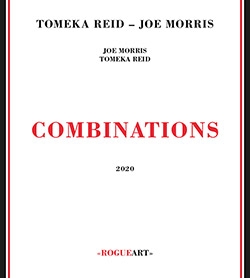
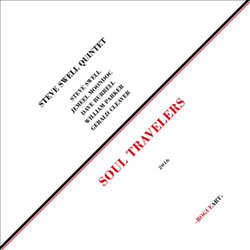
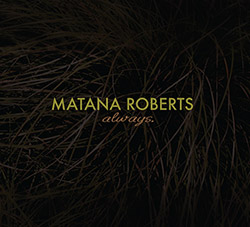





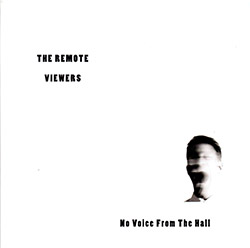
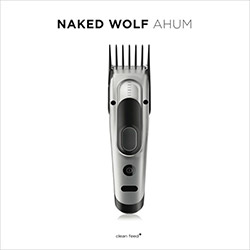
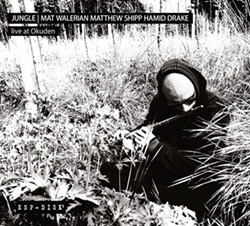
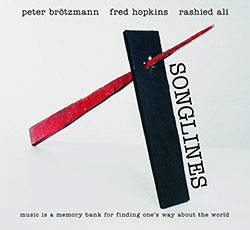
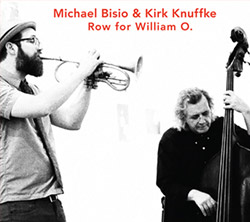





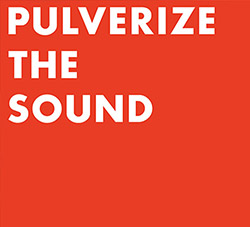










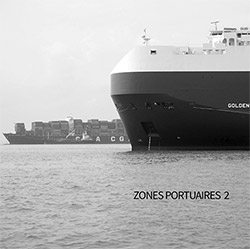
![111 (Michelle / Villamil): Live at Opus 40 [CASSETTE]](https://www.teuthida.com/productImages/misc4/35986.jpg)
![del Pino, Francisco / Charlotte Mundy: The Sea [CASSETTE]](https://www.teuthida.com/productImages/misc4/35987.jpg)

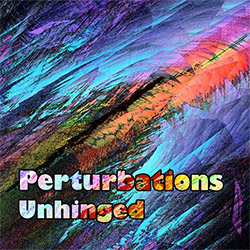

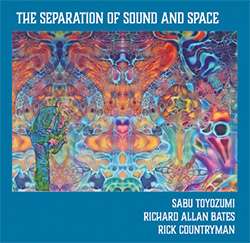
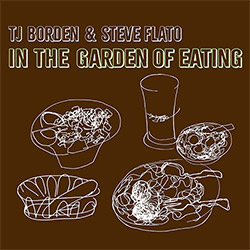

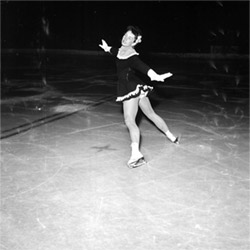
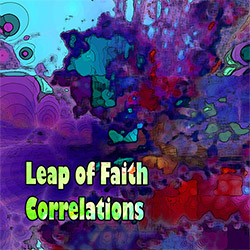

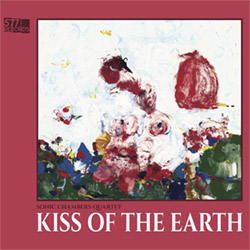

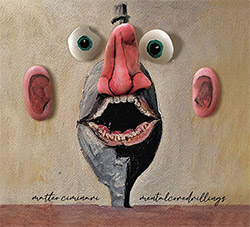
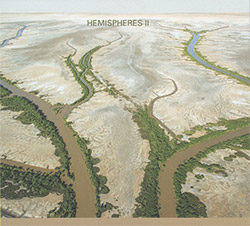
![Niblock, Phill / Anna Clementi / Thomas Stern: Zound Delta 2 [VINYL]](https://www.teuthida.com/productImages/misc4/34623.jpg)
![Yoko, Ono / The Great Learning Orchestra: Selected Recordings From Grapefruit [2 CDs]](https://www.teuthida.com/productImages/misc4/35841.jpg)

![Brotzmann, Peter / John Edwards / Steve Noble / Jason Adasiewicz: The Quartet [2 CDs]](https://www.teuthida.com/productImages/misc4/35975.jpg)
![Brotzmann, Peter / John Edwards / Steve Noble / Jason Adasiewicz: The Quartet [VINYL 2 LPs]](https://www.teuthida.com/productImages/misc4/35976.jpg)
![Thomas, Pat: The Solar Model of Ibn-Al Shatir [VINYL]](https://www.teuthida.com/productImages/misc4/36044.jpg)
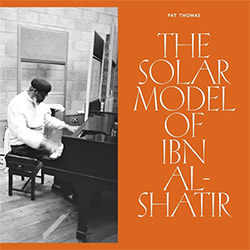



![Rodrigues, Ernesto / Nuno Torres / Guilherme Rodrigues: Whispers In The Moonlight - In Seven Movements [2CDs]](https://www.teuthida.com/productImages/misc4/35765.jpg)



![Cocks, Laura: FATHM [VINYL]](https://www.teuthida.com/productImages/misc4/36055.jpg)













![Schindler, Udo / Sandy Ewen / Damon Smith: Munich Sound Studies Vols. 4, 5 & 6 [3 CDs]](https://www.teuthida.com/productImages/misc4/35966.jpg)
![Turbulence Orchestra & Sub-Units: Smear Out the Difficulties (Double Live) [2 CDs]](https://www.teuthida.com/productImages/misc4/36048.jpg)

![Myers, David Lee : Tin Drop Tear [BOOK w/ DOWNLOAD]](https://www.teuthida.com/productImages/misc4/36030.jpg)

![Ackerley / Prymek / Turner: All Hope With Sleeping Minds [CASSETTE]](https://www.teuthida.com/productImages/misc4/35950.jpg)








![Olencki, Weston : Pearls Ground Down To Powder [VINYL]](https://www.teuthida.com/productImages/misc4/35956.jpg)
![Myers, David Lee: Oculus [2CDs]](https://www.teuthida.com/productImages/misc4/35857.jpg)


![dustsceawung: dustsceawung [CASSETTE w/ Download]](https://www.teuthida.com/productImages/misc4/35753.jpg)




![Halls of the Machine: Atmospheres For Lovers And Sleepers [CASSETTE w/ DOWNLOAD]](https://www.teuthida.com/productImages/misc4/35806.jpg)











![Zorn, John / JACK Quartet: The Complete String Quartets [2 CDs]](https://www.teuthida.com/productImages/misc4/35609.jpg)

![Lonsdale, Eden: Dawnings [2 CDs]](https://www.teuthida.com/productImages/misc4/35480.jpg)







![Sanna, Claudio: Compositori Sardi Contemporanei II [2 CDs]](https://www.teuthida.com/productImages/misc4/35317.jpg)







![Zurria, Manuel: Fame di Vento [3 CDs]](https://www.teuthida.com/productImages/misc4/35167.jpg)

![Electric Bird Noise / Derek Roddy: 8-10-22 [CD EP]](https://www.teuthida.com/productImages/misc4/35970.jpg)








![Elephant9 : Mythical River [VINYL]](https://www.teuthida.com/productImages/misc4/34624.jpg)



![Elephant9 with Terje Rypdal: Catching Fire [VINYL 2 LPs]](https://www.teuthida.com/productImages/misc4/35355.jpg)
![Deerlady (Obomsawin, Mali / Magdalena Abrego): Greatest Hits [VINYL]](https://www.teuthida.com/productImages/misc4/34876.jpg)







![Surplus 1980: Illusion of Consistency [CD]](https://www.teuthida.com/productImages/misc4/35069.jpg)
![Staiano, Moe: Away Towards the Light [VINYL + DOWNLOAD]](https://www.teuthida.com/productImages/misc4/35037.jpg)



![Caveira (Gomes / Sousa / Abras / Ferrandini): Ficar Vivo [VINYL]](https://www.teuthida.com/productImages/misc4/34643.jpg)
![Coley, Byron: Dating Tips for Touring Bands [VINYL]](https://www.teuthida.com/productImages/misc4/17906.jpg)

![Lost Kisses: My Life is Sad & Funny [DVD]](https://www.teuthida.com/productImages/misc4/lostKissesDVD.jpg)